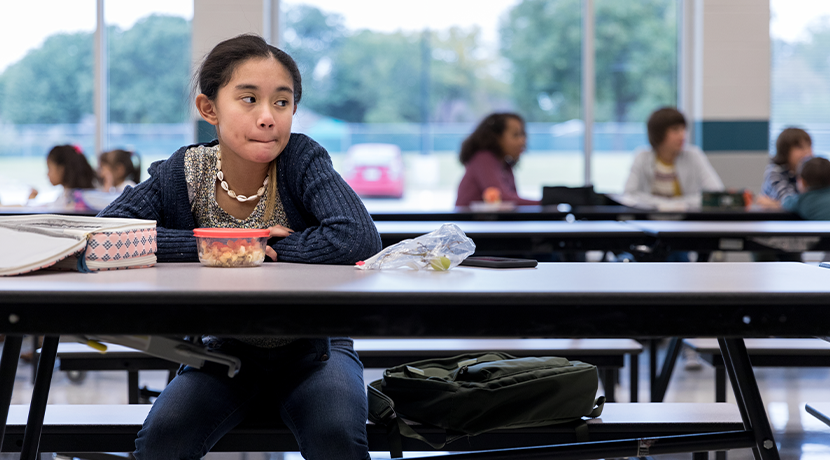
According to the National Institute of Mental Health, social anxiety affects about nine percent of children. It typically begins in early childhood or adolescence and occurs in situations where there might be judgment or scrutiny from others. Kids with social anxiety might withdraw or limit their social experiences to avoid doing something that may result in embarrassment.
Social anxiety is often used interchangeably with shyness, but the two aren’t the same thing. Although some kids with shyness will go on to develop social anxiety, more often they are able to participate in normal activities and develop close relationships – even if they are quieter in some situations.
On the other hand, children with social anxiety are more limited. Signs and symptoms include:
- Physiological symptoms: upset stomach, headache, blushing, sweating and dizziness
- Cognitive symptoms: becoming more self-conscious and having negative thoughts about themselves
- Behavioral symptoms: school refusal, avoiding social situations and withdrawal from previously enjoyed activities
If you suspect your child has social anxiety, allow them to express their fears and talk to you about how they are feeling. It can help to validate their experience and let them know you want to help them. Here are five steps that may help reduce social anxiety:
- Practice social skills. Help your child practice conversation starters and brainstorm ideas of things to talk about with their friends.
- Work on problem-solving skills. Help your child work out what they will do if they need to approach their teacher or another intimidating person.
- Focus on thoughts during intimidating situations. Help your child learn how to identify the thoughts and emotions they are feeling. This can help them challenge thoughts that might be overly negative or not true.
- Lessen avoidance of social situations. Participate in social situations with your child to help him or her learn to enjoy them. Remember – complete avoidance can make the situation worse.
- Relax together as a family. Practice yoga or meditation to help with the physical symptoms of social anxiety.
If you feel your child needs the help of a medical professional, talk to your pediatrician. He or she can provide a referral to a qualified therapist or psychologist.
In a clinical setting, social anxiety is most often treated with cognitive behavioral therapy (CBT) and medication. During CBT sessions, children are taught to identify, challenge and reframe their thinking, while also facing anxiety-provoking situations through exposure. Together, children and therapists create a list of situations where the child feels socially anxious. They then work their way through the situations with imaginal or in vivo (real life) exposure. In vivo exposure is preferred as it replicates the real world and tends to produce the best results.
NorthShore University HealthSystem offers individual therapy with licensed clinical therapists and psychologists, or medication management with a psychiatrist. We also have a partial hospitalization program for older children and teens as well as an intensive outpatient program.
To learn more about behavioral health at NorthShore, visit us online or call 847-425-6400.